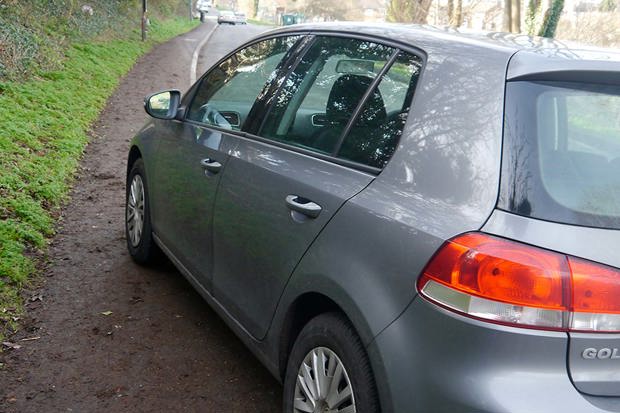Drivers urge action on pavement parking – but what’s the best solution?

More than eight in 10 drivers want the government to act on pavement parking in England – but they are split on the best course of action.
42% of drivers said they would support an outright ban on parking on pavements in England, found research by the RAC.
However, a virtually identical 41% felt councils should instead be given powers to ban parking pavements on specific roads more easily than they can today.
Just 13% said pavement parking shouldn’t be banned.
"There’s no doubting pavement parking is a serious issue in some communities that needs tackling," says RAC senor policy officer Rod Dennis.
"A clear majority of drivers agree and want to see an end to needless pavement parking that causes accessibility problems – but when it comes to solutions, the jury is out.
"This probably reflects the fact that not all UK streets are the same – after all, some drivers will put a tyre or two on the kerb on narrow residential streets to ensure other vehicles can still pass them, while not blocking pedestrians using the pavement.
"Even with an outright ban, councils would presumably still have to allow pavement parking in some places, to ensure streets remain passable."
Pavement parking has been banned in London since 1974. Offenders are fined between £140 and £160. Scotland also banned pavement parking in 2025, with a penalty of £100 (reduced to £50 if paid within 14 days).
No such general ban exists in England. Councils only have the option of consulting on implementing separate Traffic Regulation Orders, or TROs, to ban pavement parking on specific roads. This is costly and time-consuming.
Ministers have been looking at pavement parking since 2019, where the issue was highlighted in a report. Plans were then consulted on in 2020, but the response was never published.
The current government signalled its intention to take action on pavement parking back in July. "We look forward to seeing the government’s proposals in due course," says Dennis.

